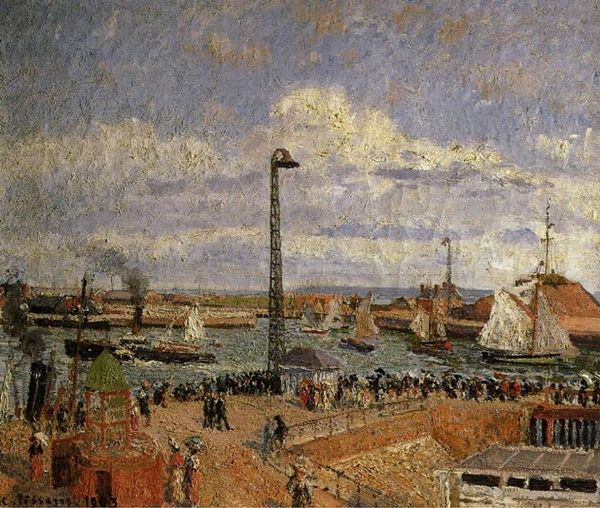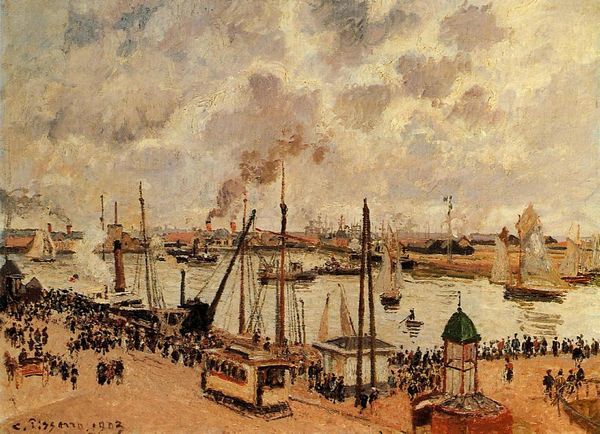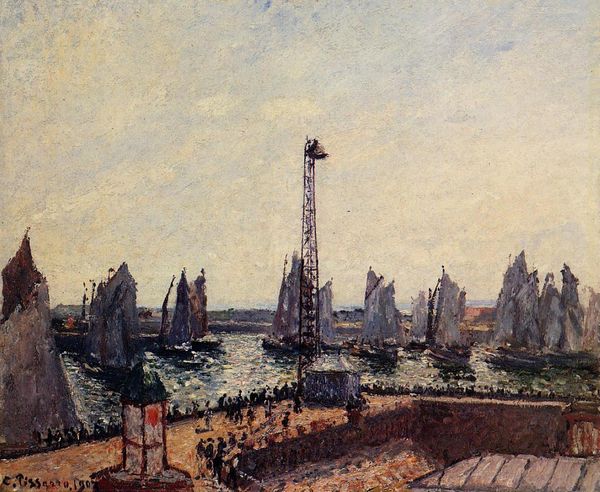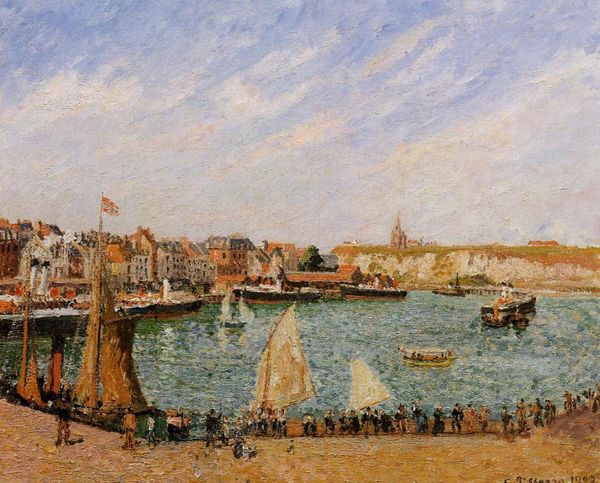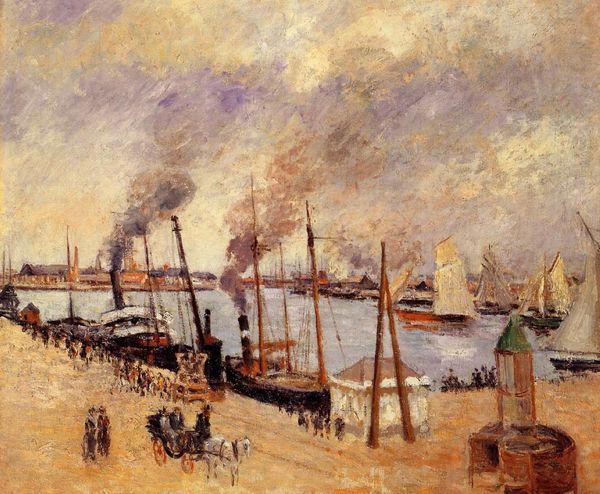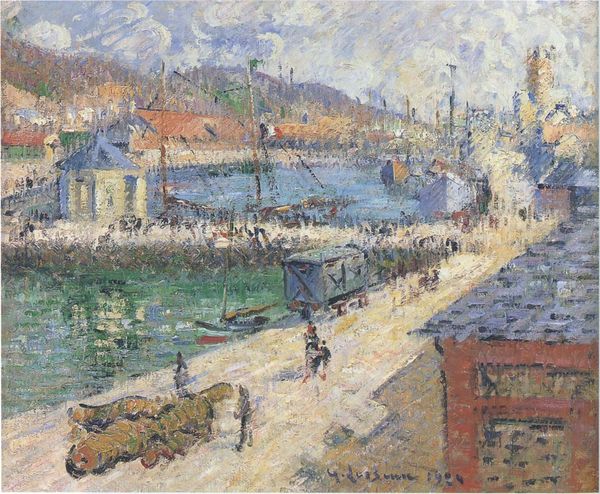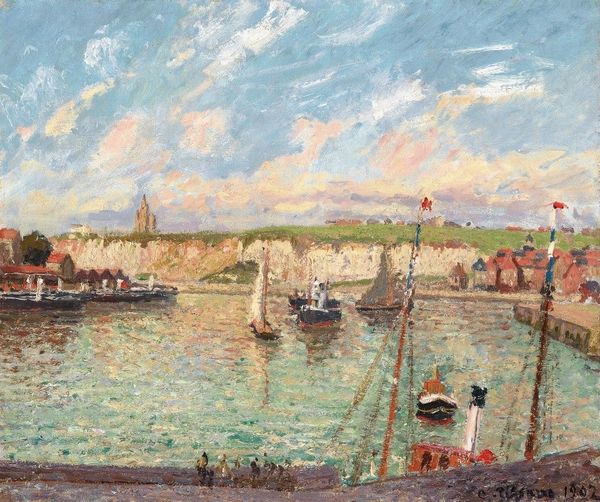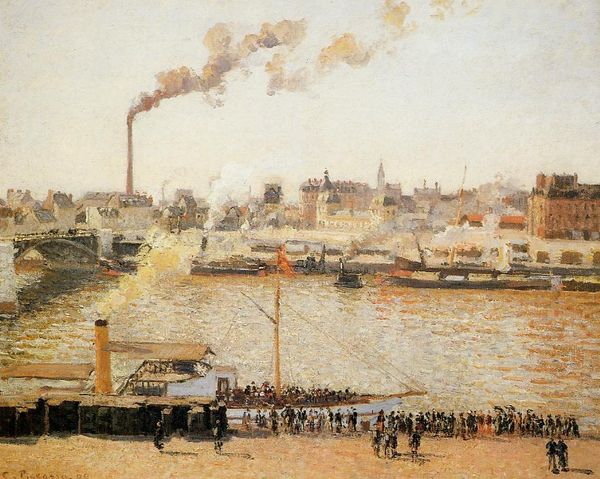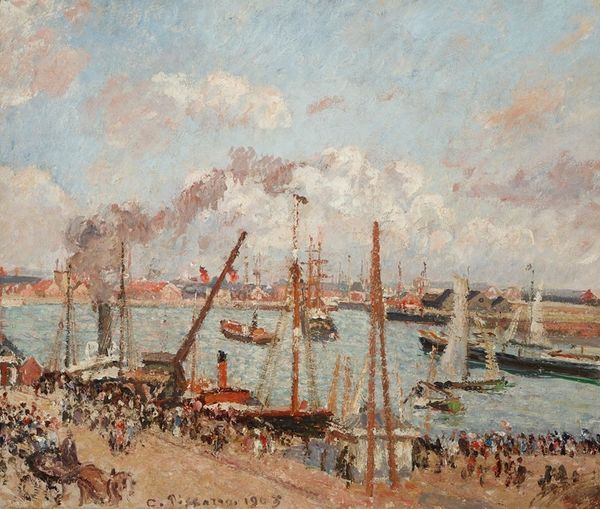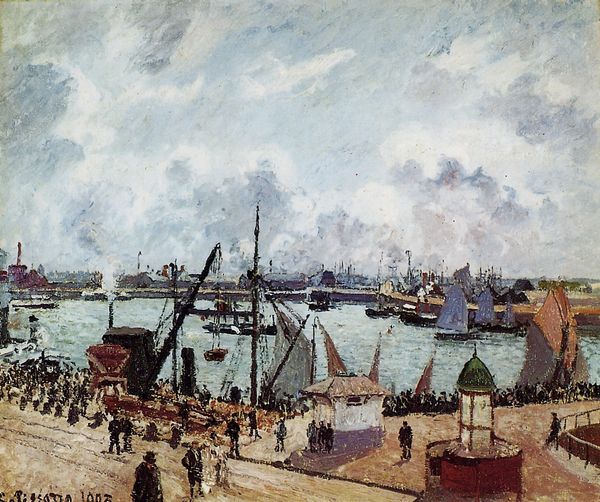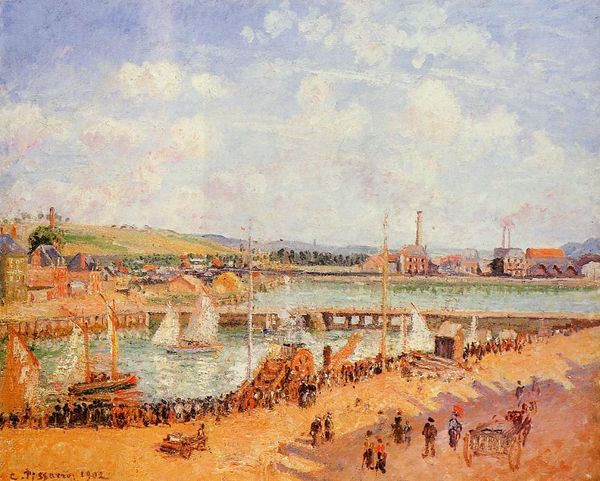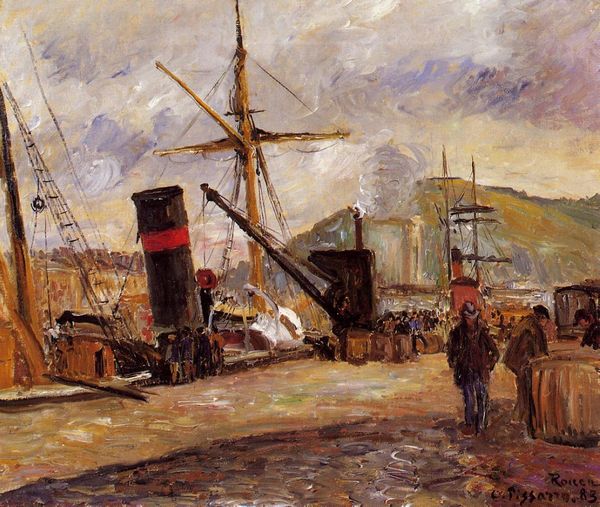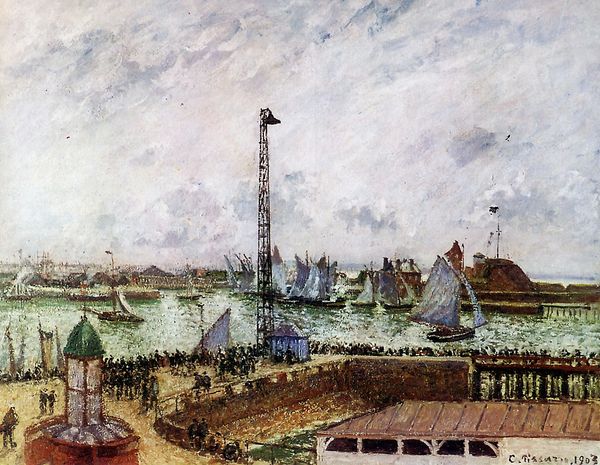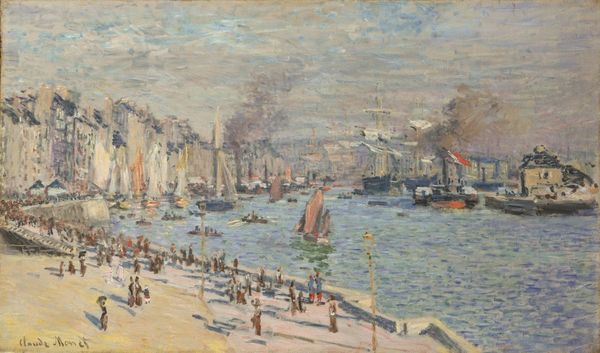
#
urban landscape
#
abstract painting
#
street view
#
urban cityscape
#
possibly oil pastel
#
oil painting
#
city scape
#
acrylic on canvas
#
street graffiti
#
watercolor
Dimensions: 46 x 55 cm
Copyright: Public domain
Editor: Here we have Camille Pissarro's "The Inner Harbor, Havre" from 1903. It appears to be an oil painting, and it really captures a bustling harbor scene. The textures and light create this fantastic, shimmering effect. How do you interpret this work, focusing on its formal elements? Curator: The dynamism inherent within “The Inner Harbor, Havre” is initially observed through its sophisticated orchestration of light and color. Notice how Pissarro employs short, broken brushstrokes to not merely represent the scene but also to construct a surface that vibrates with visual energy. Is it not evident how this technique dissociates the artwork from being a mere depiction of reality? Editor: Yes, definitely! It’s like he’s not just painting the harbor, but the feeling of being there, in that moment. The light seems to dance across the water. Curator: Precisely. And what is most intriguing is how this method impacts our perception of space. The traditional conventions of linear perspective are subtly undermined. Pissarro compresses the distance, presenting the various planes almost parallel to the picture surface, forcing the viewer's eye to continuously circulate, piecing together the whole. The interplay among these pictorial strategies generates an utterly modern understanding. Would you not concur? Editor: I do, it’s almost like cubism in its attempt to capture many viewpoints at once. It all encourages a slower, more deliberate kind of looking, doesn’t it? I didn't fully realize how much he plays with the viewers’ eye, encouraging to examine shapes and patterns of colours. Curator: Indeed. Understanding the work in this manner allows us to appreciate it beyond the mere recognition of the subject matter. Now we begin to interpret not only what the artist is representing but, far more significantly, how the artist's form conveys deeper concepts.
Comments
No comments
Be the first to comment and join the conversation on the ultimate creative platform.
